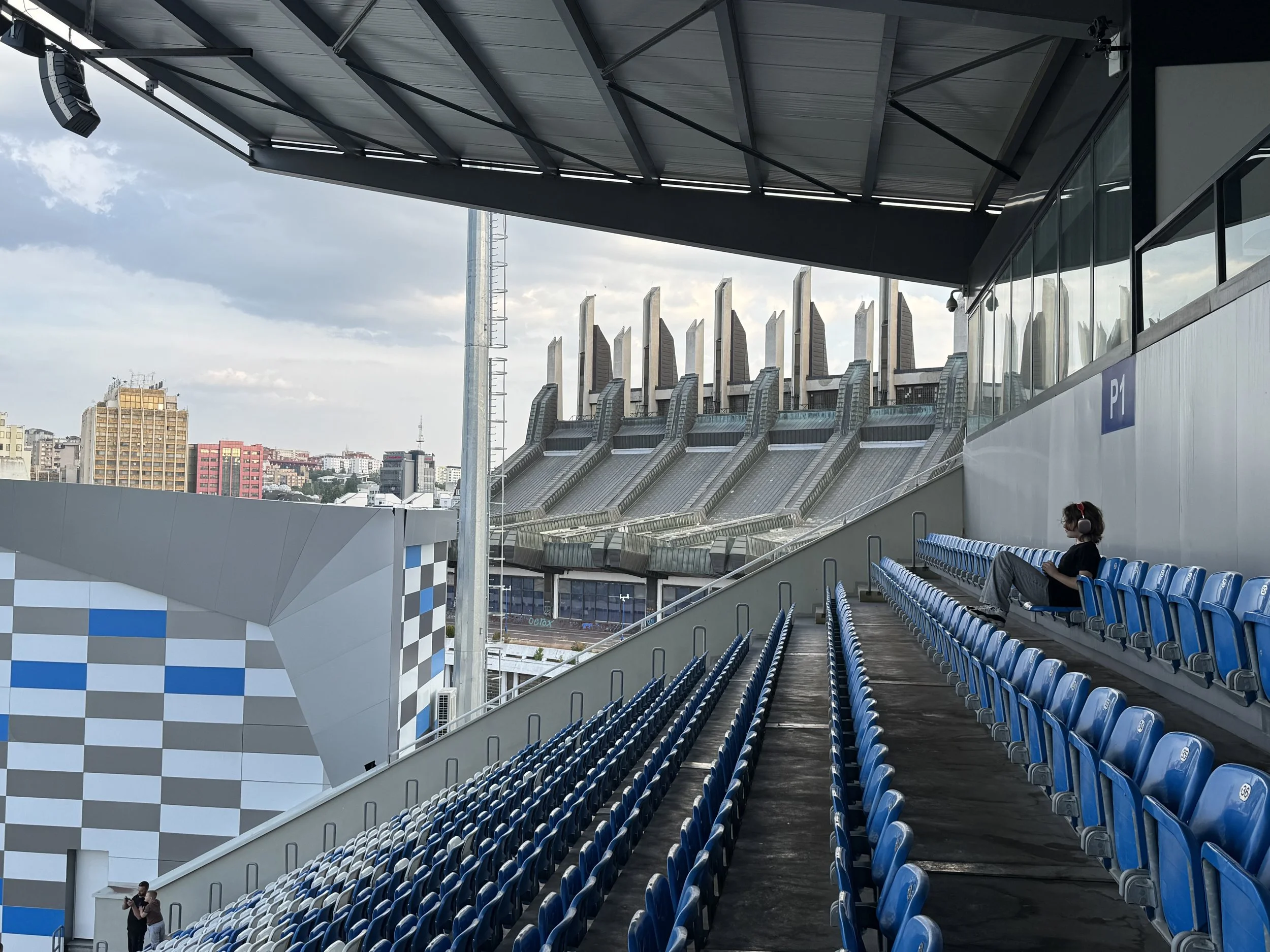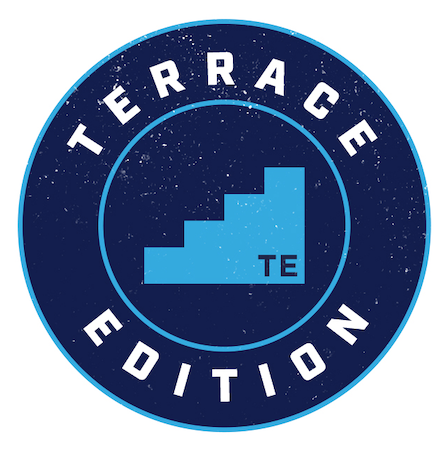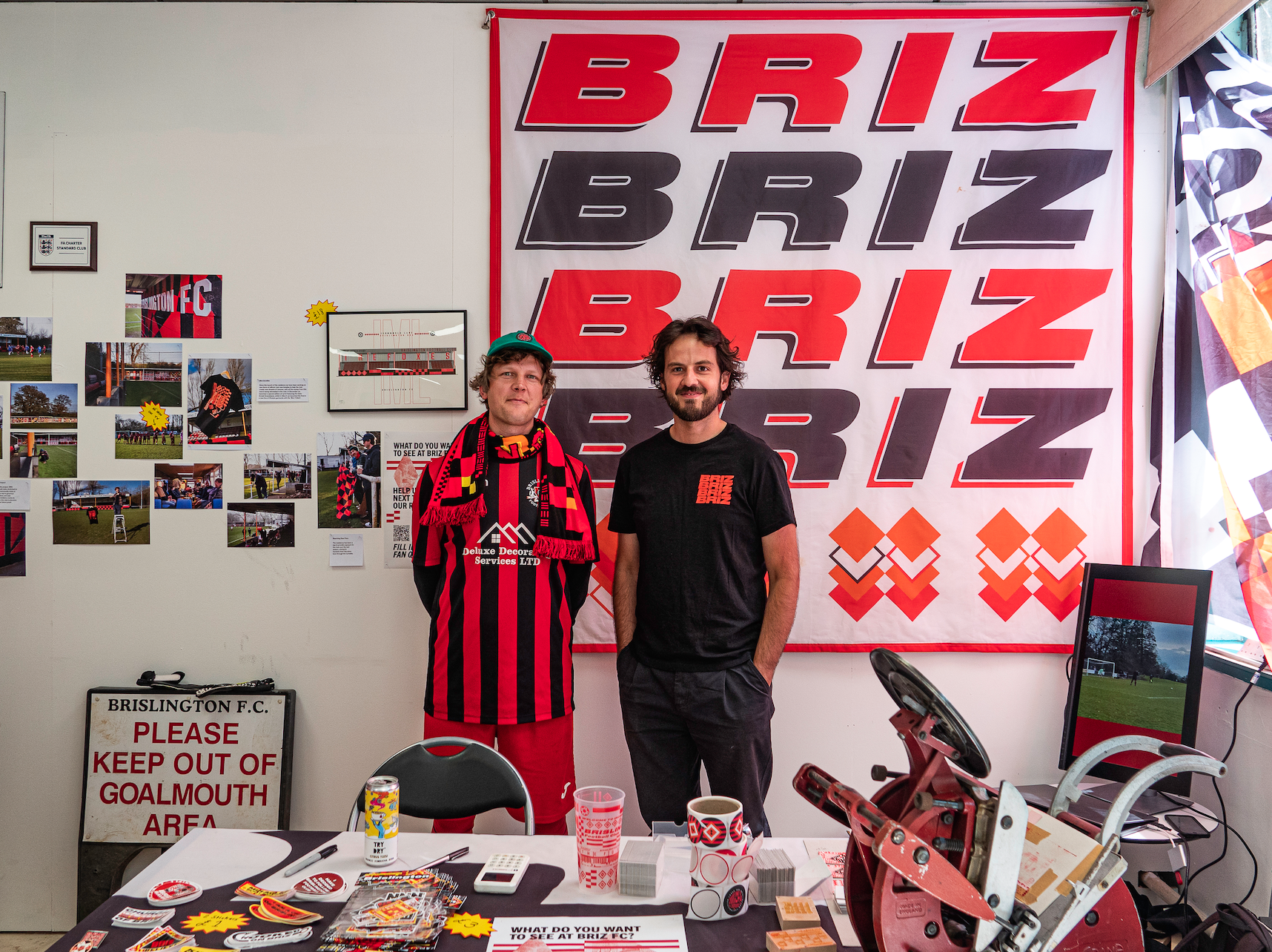Pristina: Football poetry

Words: Éanna Mackey
Images: Éanna Mackey
More than two thousand years ago, the Dardanians launched a surprise assault on the mighty kingdom of Macedon.
The empire’s generals scoffed at the thought of wild tribes from the hills. Then came the shock: the Dardanians tore through their defences, shattered their pride, and left them scrambling for survival.
That spirit never left. Not through empire, exile, or war. Today, it marches onto football pitches in blue shirts with a golden map on their chest.
Is it even a country? That depends on who you ask. But to the people of Europe’s newest nation, Kosovo exists—and its football scene grows stronger with every passing year.
The Fadil Vokrri Stadium in the capital, Pristina, acts as the beating heart of the nation’s pulse. It’s named in honour of the legendary Kosovar forward who scored 121 goals in 363 appearances for clubs like Partizan Belgrade, Fenerbahçe, and FC Pristina—the country’s biggest and most successful club.
©Éanna Mackey/ Terrace Edition. Fadil Vokrri Stadium.
Just a short walk from the capital’s bustling main thoroughfare, named after modern-day Catholic saint Mother Teresa, the stadium backs onto the striking Palace of Youth and Sport, built in 1975 and now adorned with images of Adem Jashari, the feared leader of the Kosovo Liberation Army.
The stadium, built 22 years earlier, received a 21st-century upgrade that officially opened on June 18, 2018. It was renamed that same day from Pristina City Stadium to honour Vokrri, who died suddenly just hours before the ceremony.
The renovation came in line with FIFA and UEFA standards—the final piece of a long campaign that Vokrri himself had spearheaded.
For decades, Kosovars played football without a flag. After the war ended in 1999, the region fell under UN administration. Domestic leagues slowly took shape, but Kosovo remained invisible on the international stage.
With the country’s youth scattered across Europe, players like Xherdan Shaqiri and Granit Xhaka—ethnic Albanians from Kosovo—rose to fame with Switzerland.
©Éanna Mackey/ Terrace Edition. Fadil Vokrri Stadium.
But the idea of a national team playing under the gold and blue Kosovar flag felt like a fantasy.
It was Fadil Vokrri who changed everything. Appointed president of the Football Federation of Kosovo (FFK) in 2008—the same year Kosovo declared independence—he worked tirelessly behind the scenes for eight years.
Lobbying UEFA and FIFA, building alliances, and reframing Kosovo’s case as one of fairness, not politics.
His efforts paid off in 2016 when Kosovo was finally admitted into both bodies. Two years later, just as Kosovo’s national team began its rise, Vokrri passed away. Today, his name adorns the national stadium—a lasting tribute to the man who turned Kosovo’s football dream into reality.
Vokkri’s lifetime of service to Kosovo football began with FC Pristina, where he began his career and made over 170 appearances between 1980 and 1986.
The club is the grounds primary tenant along with the national team. Founded in 1922, Pristina had been a symbol of national pride long before Kosovo had borders.
©Éanna Mackey/ Terrace Edition. Fadil Vokrri Stadium.
For years they were the only team to play in the Yugoslav First League, regularly clashing with the Giants of Red Star and Partizan in Tito’s capital.
After the war they continued to carry the torch, dominating the Superleague and becoming the first Kosovan team to win a match in a UEFA competition in 2018.
While Kosovo’s journey into statehood and the football field remains in its infancy, Europe’s youngest nation continues to defy expectation.
As the blue-and-gold proudly claims its place in stadiums across Europe, Kosovo’s players carry with them more than just a flag—they bring a powerful legacy of survival, identity, and unbreakable pride.
From the rugged hills that once challenged the might of Macedon to the bright lights of UEFA arenas, football in Kosovo transcends sport. It stands as a living testament to a nation’s enduring spirit and its hard-won place on the global stage.
If Kosovo is an epic poem, there are more verses to be written here.
©Éanna Mackey/ Terrace Edition. Fadil Vokrri Stadium.
©Éanna Mackey/ Terrace Edition. Fadil Vokrri statue.
©Éanna Mackey/ Terrace Edition. Fadil Vokrri Stadium.
©Éanna Mackey/ Terrace Edition. Fadil Vokrri Stadium.
©Éanna Mackey/ Terrace Edition. Fadil Vokrri Stadium.
©Éanna Mackey/ Terrace Edition. Fadil Vokrri Stadium.
©Éanna Mackey/ Terrace Edition. Pristina with Fadil Vokrri Stadium in distance.
You can find Éanna on X: @e_macaoidh















